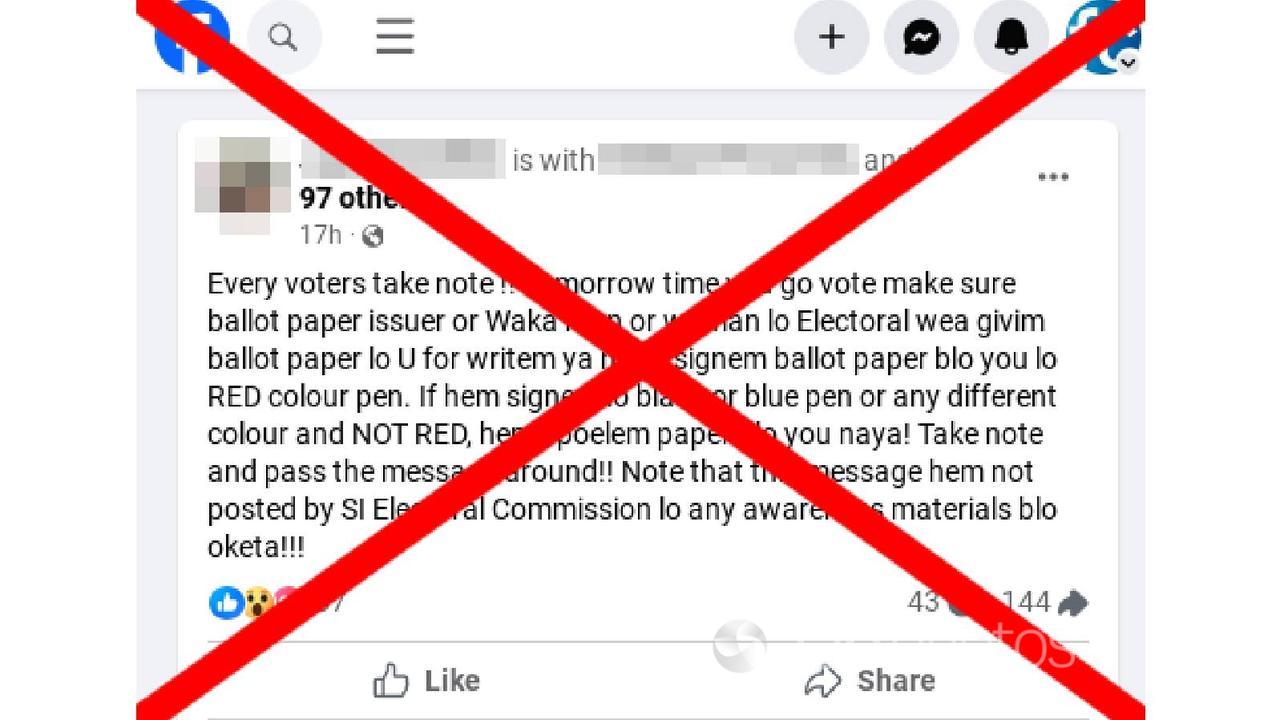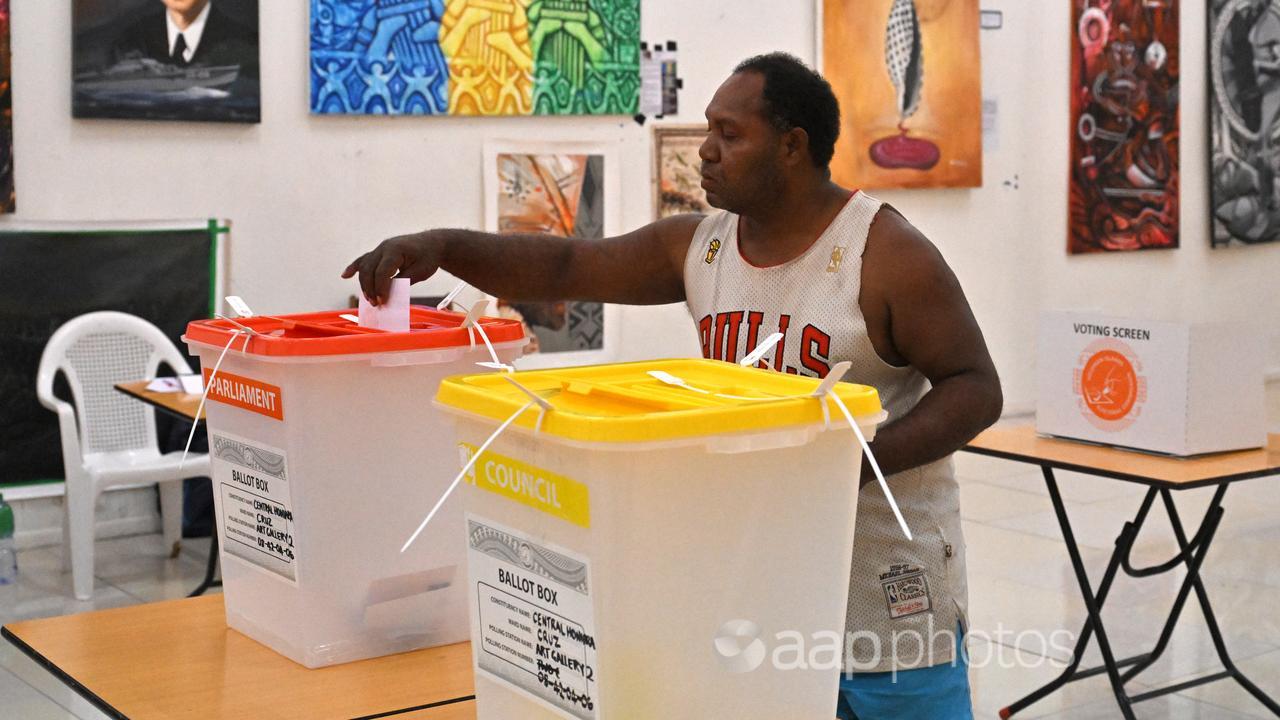Solomon Islands voters are being cautioned that the colour of the pen used by election officials to mark their ballots will determine whether or not they’re counted.
This is false. The country’s electoral commission says there’s no law regarding the colour of the pen used by officials and that all ballots with an official mark will be valid and counted.
Some 420,000 voters are heading to the polls on April 17 for the national and eight of 10 provincial elections in the Pacific Island nation.
Amid the pre-election media blackout, some social media users have claimed that votes will be invalid unless ballot issuers mark them with a red pen.
This Facebook post (archived here) warns in Solomon Islands Pidgin English that papers marked with a blue or black pen will be “spoelem”, or spoilt.

A spoilt ballot paper is one that has been rendered invalid, according to Solomon Islands law.
“Tomorrow time you go vote make sure ballot paper issuer or Waka man or woman lo Electoral wea givim ballot paper lo U for writem ya must signem ballot paper blo you lo RED colour pen,” the post reads.
“If hem signem lo black or blue pen or any different colour and NOT RED, hem spoelem paper blo you naya!”
The same claim appears in other Facebook posts written in Pidgin English here and here.
Other posts (here, here and here) make the same claim in English.
“The colour of the Ballot Paper Issuer’s SIGNATURE MUST be the colour RED,” the posts read.
“If the Ballot Paper Issuer’s signature is in Blue, Black or any other colour then RED, your ballot paper will be considered INVALID and will not be counted as a VALID VOTE.”
Another Facebook post mentions that the claim comes from “the YTTF group”.
This refers to the Yumi Tok Tok Forum, a private Facebook group with more than 23,000 members.
But the country’s Electoral Act 2018, which sets out the running of the national election, does not specify any need for a specific colour of pen.
All it states (section 101(2)) is that a ballot paper must feature an “official mark” to be counted.
The same requirement features in the Provincial Assemblies And Honiara City Council Electoral Act 2024 (Section 57(2), which sets out the running of the provincial elections.
The Solomon Islands Electoral Commission (SIEC) said in a statement that the claim is “misinformation and not true”.

“An official mark can be of any colour, as long as it is the mark from an authorised official,” the SIEC said.
“Voters are requested to simply ensure that the Ballot Paper Issuer has marked the ballot paper with an official mark or has put his/her initial in the official mark box at the bottom right-hand corner of the ballot paper.”
The SIEC added that a red pen will often be used as it helps electoral officials in verifying ballot papers more efficiently.
The Verdict
The claim that votes in the Solomon Islands election are invalid if election officials don’t mark ballots with a red pen is false.
Legislation which sets out the running of the election does not specify a colour – only that an official mark is made.
This was confirmed by the Solomon Islands Electoral Commission.
False – The claim is inaccurate.
AAP FactCheck is an accredited member of the International Fact-Checking Network. To keep up with our latest fact checks, follow us on Facebook, Twitter and Instagram.
All information, text and images included on the AAP Websites is for personal use only and may not be re-written, copied, re-sold or re-distributed, framed, linked, shared onto social media or otherwise used whether for compensation of any kind or not, unless you have the prior written permission of AAP. For more information, please refer to our standard terms and conditions.


















